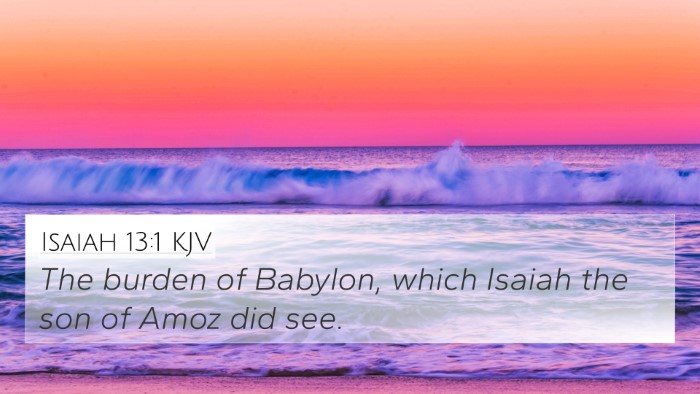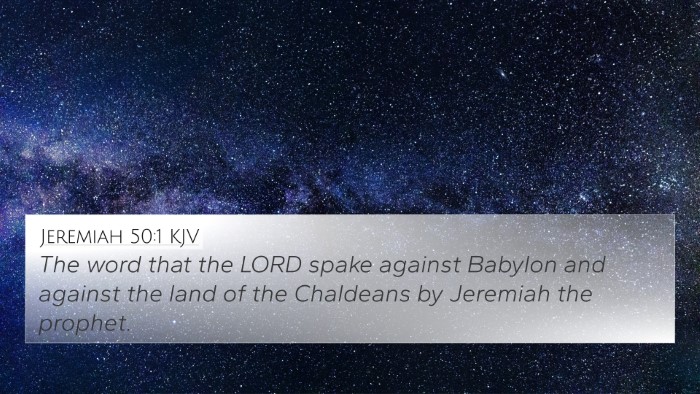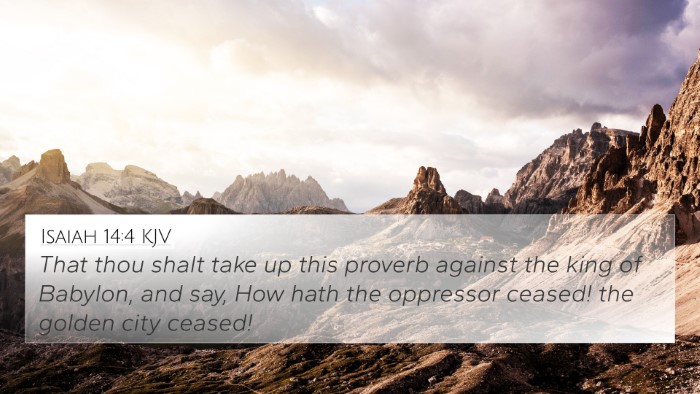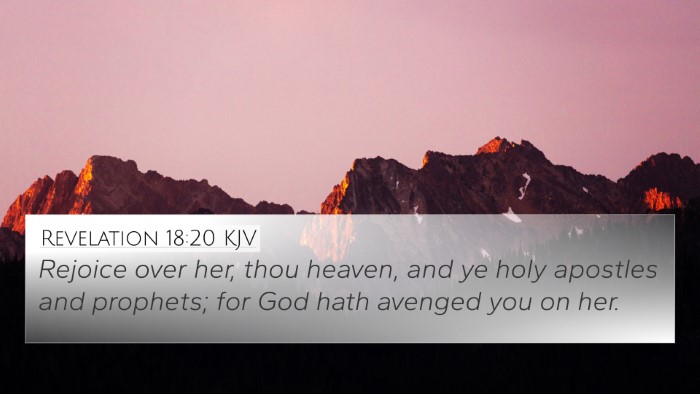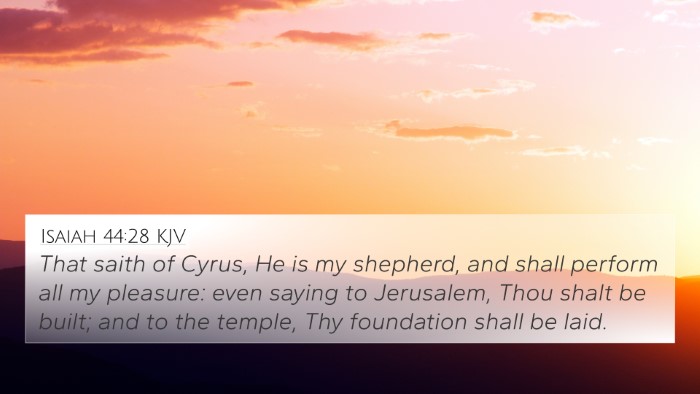Psalms 137:8 - Meaning and Interpretation
Psalms 137:8 reads: "O daughter of Babylon, who art to be destroyed; happy shall he be, that rewardeth thee as thou hast served us." This poignant verse captures the emotional turmoil of the Israelites during their Babylonian exile. In this verse, there are several layers of meaning and scriptural connections that can be analyzed.
Contextual Background
The Psalm expresses the sorrow of the Israelites as they reflect on their captivity. It encapsulates their longing for Jerusalem and their grief over the destruction of their homeland. This verse directly addresses Babylon, a symbol of oppression and captivity, invoking both a cry for justice and a longing for retribution.
Verse Analysis
Here is a breakdown of key elements from Psalms 137:8, using insights from several public domain commentaries:
- Historical Context: Matthew Henry notes that the Israelites were deeply affected by the Babylonian conquest and captivity, which led to profound lamentation.
- Emotional Appeal: Adam Clarke emphasizes the emotional weight of this verse, as it reflects both the pain of exile and the desire for eventual justice against oppressors.
- Prophetic Implications: Albert Barnes draws attention to the prophetic nature of the psalm, highlighting that it foretells the downfall of those nations that oppress God's people.
Thematic Connections
This verse connects various themes found throughout the Bible, showcasing the recurring motifs of justice, revenge, and hope for restoration. Below are supportive themes and references:
- Divine Justice: References to God's justice can be found in Isaiah 47:6, where God calls upon Babylon to face its consequences.
- Longing for Zion: Psalms 137:1-4 expresses the sorrow of the Israelites and is echoed in Revelation 21:2, which describes the new Jerusalem.
- Retribution Against Nations: Jeremiah 50 and 51 reflect the judgment of Babylon, corresponding with the thoughts in Psalms 137:8.
Cross-References
Psalms 137:8 echoes throughout Scripture, revealing several cross-referenced connections that deepen its understanding:
- Psalms 79:10 - The plea for God to avenge the nations that have harmed His people.
- Isaiah 34:8 - A prophecy of the vengeance God takes against the wicked.
- Revelation 18:6 - An exhortation to repay Babylon as it has repaid others.
- Deuteronomy 32:35 - God avenges His people and brings justice at the appointed time.
- Jeremiah 51:24 - The promise of recompense against Babylon for its actions against Israel.
- Romans 12:19 - An instruction on leaving vengeance to God, reflecting the essence of justice.
- Obadiah 1:15 - The day of the Lord shall come upon all nations, emphasizing retribution.
Connecting Themes Through Bible Verse Cross-References
This verse serves as a critical node for theological discourse on justice and divine retribution. Each cross-reference builds a larger narrative around the themes of oppression and the inevitable judgment of God upon those who oppose His people. Understanding these connections allows for a deeper exploration of Biblical themes and their implications throughout both the Old and New Testaments.
Tools for Further Study
For those interested in exploring the connections between Bible verses, several tools can enhance understanding:
- Bible Concordance: Useful in locating specific verses and their related themes.
- Bible Cross-Reference Guide: Helps in navigating linked scriptures across the text.
- Cross-Reference Bible Study: A method that systematically seeks connections between verses.
Conclusion
Psalms 137:8 invites readers into a profound understanding of the tension between sorrow and hope, while also serving as a poignant reminder of the eventual justice that God will enact against those who act unjustly. Through careful cross-referencing and comparative Bible verse analysis, one can unearth rich meanings and thematic connections that pervade the biblical narrative.




